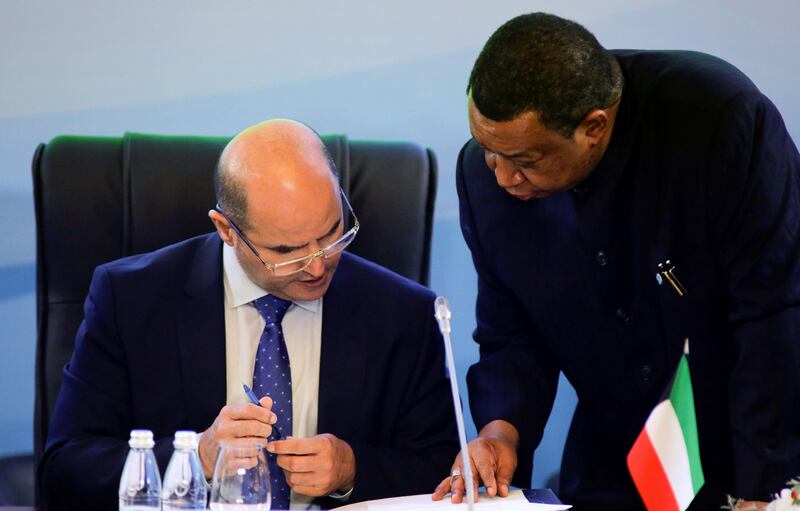Kuwait joined the UAE in promising to pump less oil after Saudi Arabia called on fellow Opec producers to cut more supply to help curb the global glut.
Kuwait Petroleum has agreed with customers in the US to reduce contractual sales volumes of oil for 2017, state-run KPC said. The announcement came a day after the UAE Minister of Energy Suhail Al Mazrouei said Abu Dhabi National Oil Co (Adnoc) would trim shipments of Murban, Das and Upper Zakum crudes by 10 per cent starting in September.
“Kuwait’s compliance with the Opec agreement has led to a decrease in its production and thus a reduction of its exports,” KPC said , citing Emad Al Abdulkarim, the acting managing director of global marketing. “The US market was the most affected by this reduction.”
The actions by both nations followed criticism on Monday from the Saudi Arabian minister of energy and industry Khalid Al Falih of members of the Opec who haven’t fulfilled their promised supply reductions. Kuwait has complied at an average rate of 98 per cent with its pledged reduction of 131,000 barrels a day, according to the International Energy Agency. The UAE has implemented only 54 per cent of its promised 139,000 barrel-a-day cut on average, the IEA said.
“The UAE is committed to its share in the Opec production cut,” Mr Al Mazrouei said Tuesday in a tweet.
Oil slid into a bear market last month on concerns that rising global supply was blunting the impact of the historic agreement for a cut in output this year between Opec and allied producers such as Russia. The group’s compliance with the deal has been weakening, while output in Opec members Nigeria and Libya - both of which are exempt from making cuts because of their internal strife - has bounced back.
A meeting of oil producers in St Petersburg, Russia, on Monday agreed to let Libya and Nigeria to keep increasing output but stressed the need for other producers to follow through.
Iraq, Opec’s second-largest producer, has lagged behind most of its fellow members, complying at an average rate of 46 percent, according to the IEA. Iraq has yet to indicate whether it plans to deepen its cuts in coming months.
Saudi Arabia, Opec's biggest producer, went beyond its obligation, exceeding its 486,000 barrels-a-day cut by more than a fifth, the IEA data show. The UAE.is Opec's fourth-largest producer, while Kuwait ranks fifth, data compiled by Bloomberg show.
Bloomberg






